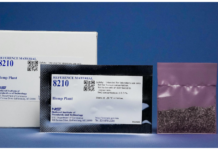Over the past decade, cannabis companies have been eager to jump into the mix as new states open licensing programs and new consumers have their first opportunity to buy legal products. But over the past few years, the industry has proved to be more competitive and challenging than many operators expected, and investors now are taking a much more cautious approach when new markets open.
Most multistate operators and large regional companies plan to focus their investment capital on Midwest and East Coast markets this year and next, which could present opportunities in the South for smaller entities willing to take the slow road and lay the groundwork for a more robust market if and when adult-use legislation passes.
In the South, Georgia, Louisiana, Alabama, and Mississippi now operate medical markets—great news for their combined population of almost 24 million people. The coming months will reveal how many companies apply for licenses and how the dynamics of the new markets shake out.
Florida, despite its population of 22 million, initially issued only a handful of licenses for well-funded, vertically integrated companies. The four neighboring states are opening their doors to a wider range of groups, and some even set aside a percentage of licenses for Black- and Indigenous-owned businesses.
Consulting firm Global Go recently conducted an analysis of the southern cannabis market that outlined the risks and opportunities these states represent. “An $800-million, four-state market would be larger than all but eleven individual states in 2021 and all but three medical-only states,” the report noted. “As shown by the experience of the fortunate winners of Florida licenses, the right regulatory mix of medical-only states can be particularly profitable for companies. Or, as seen in New York, too many limits on stores and products can keep markets stunted.”
It’s also worth noting Georgia, Louisiana, Alabama, and Mississippi have strict regulations and some of the lowest consumption rates in the country, so companies may not be able to generate significant revenues or profits for a considerable time. Restrictive rules southern states have put in place to limit the number of patients, retail outlets, and sales include:
- In Georgia, only two companies (Trulieve Georgia and Botanical Sciences) may cultivate and sell products, with five dispensaries per license. These dispensaries can sell only low-THC oil (5 percent or less by volume) to registered patients.
- In Mississippi, more than eighty cities and nineteen counties have local bans disallowing dispensaries.
- In Alabama, the cannabis commission will license no more than four dispensaries, which may have up to three locations in different counties.
- In Louisiana, the total number of operating medical dispensary locations is capped at thirty.
The Global Go analysis noted none of these states have followed the much-praised example set by Oklahoma, which outlined a liberal, inexpensive, and laissez-faire approach to licensing in 2018.
“Most of the biggest MSOs already are operating in Florida, and there’s not that much interest in Alabama, Mississippi, [and other southern states],” said Tom Adams, Global Go’s chief executive officer. “But this is why it’s a great opportunity for anybody else that can get a license, because [the big MSOs] are the companies that can really make it tough for small, independent operators.”
In terms of the best opportunities in the four states, Adams noted Alabama and Louisiana have the strictest and most limited licensing regulations, although Mississippi and Georgia have challenges of their own.
“Georgia is a good bet because of the size of the opportunity, and Mississippi isn’t as tightly regulated and is allowing vertical integration, but you’ve got to stay small, with only one cultivation, one processing, and one retail operation,” he said. “They haven’t announced a numerical cap, but they may be thinking about one. That’s a two-edged sword. On the one hand, it means the market can get bigger faster. But it also means more competition. Those are the wrinkles people tend to ignore.”










[…] the Florida-based company is faring better in the South, and currently has what amounts to a monopoly in Georgia. Trulieve is one of only two licensed […]